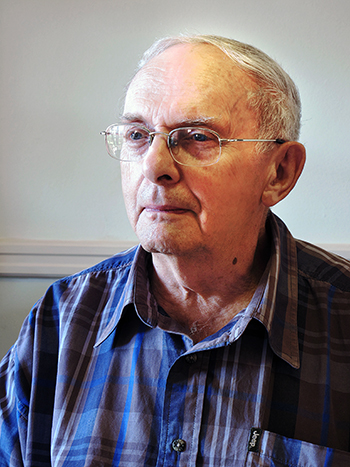
Prof Jaap Steyn, who started his career as
journalist at Volksblad, later entered the academy,
and was a professor at the University of the
Free State for many years.
Photo: Marthie Kemp
Although Prof Jaap Steyn will be honoured officially for his contribution to Afrikaans as an academic language at the end of this month, he only became aware of his nomination after he had won the award.
According to this research fellow in the Department of Afrikaans and Dutch, German and French at the University of the Free State (UFS), he is grateful for the recognition. He has recently been awarded the Jan H Marais Prize for his outstanding contribution to Afrikaans.
Former Kovsie honoured together with Prof Jan van der Watt
According to a statement by the South African Academy for Science and Arts, the award was jointly made to Prof Steyn, who is probably the best-known South African language historian, and Prof Jan van der Watt van Nijmegen from the Netherlands. The prize money of R500 000, which they will share, will be presented in Stellenbosch on 30 May 2017.
Prof Steyn is a former Kovsie, who was a research professor at the UFS from 1985 to 1997, and at the age of 78 is still a research fellow. “After the announcement of the prize, I learnt that I was nominated by two of my colleagues,” he says.
His most difficult work was probably also his best
Over the past 50 years several of his publications, biographies, and books have seen the light. He believes that nothing one does is perfect. His most difficult work was the biography of NP van Wyk Louw. “It was probably also my best work,” he says. “The book I enjoyed working on most, was the biography of the author MER, or ME Rothmann.”
Prof Steyn has also received awards such as the Stals Prize, the Louis Hiemstra Prize, the NP van Wyk Louw medal, and honorary membership from the South African Academy for Science and Arts.
He says the staff in the Department of Afrikaans and Dutch, German and French are very friendly and helpful to still render him assistance as a research fellow.